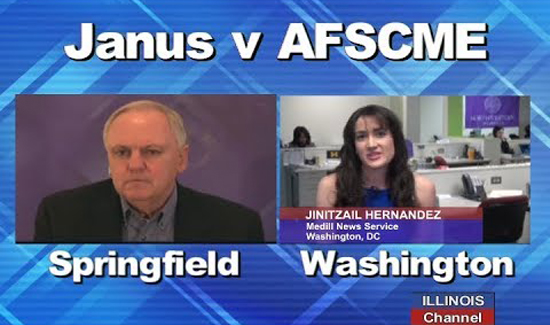Millennials, White-collar Workers Bringing New Life to Unions

Everyone knows that in the United States the numbers of workers represented by unions and enjoying the better pay and benefit package that comes with collective bargaining has been shrinking for decades. And if the Supreme Court rules that it is a violation of a public right of free speech to automatically collect dues from his or her paycheck (Janus vs. AFSCME), it could speed up the death knell for public sector unions. And that will impact everyone in law enforcement who has enjoyed the protections and increased clout that comes with union membership.
But there is some hope on the horizon. According to a report by Katie Johnston in The Boston Globe, there are new signs of life in the union movement and the fight for fairer and better pay, benefits and working conditions but the people reinvigorating the organizing efforts of local unions are not coming from the traditional places.
It turns out the new labor movement enthusiasts are millennials and professionals especially in New England, where more than half of the union members in the state are doctors, lawyers, teachers, architects, and other white-collar employees.
Johnston writes: “Last year, a third of the 262,000 new union members nationwide were in professional or technical occupations, mostly in the public sector. And more than three-quarters of new members were under age 35, part of a five-year trend of growth among younger workers, according to the Center for Economic and Policy Research.
“Workers across many industries are increasingly banding together and standing up against management as part-time and contract work grows, automation amps up, and wages barely budge, labor observers say. Silicon Valley tech workers have started a coalition to unite. Journalists from the HuffPost to the Los Angeles Times have organized for the first time. And campaign workers are bargaining collectively with several congressional campaigns in what may be a first for national politics.
“In Boston, graduate students at Harvard and Northeastern are seeking to unionize — following recent success at other schools — as are teachers at two Roxbury charter schools. Language teachers at EF Education First in Boston just approved the firm’s first U.S. contract, staffers at Emerson College are working out details of their inaugural agreement, and public defenders are holding rallies to demand collective bargaining rights.
“I really believe this is a fulcrum and that the labor movement is really shifting,” said Tom Juravich, interim director of the Labor Center at the University of Massachusetts Amherst. “What we’ve seen in the last couple of years are young people saying, ‘You know what, I’m tired of being a contingent worker with no benefits and no job security.’ ”
Lawyers and financial investigators at the Massachusetts Board of Bar Overseers, which investigates complaints about lawyers, are expecting their first contract to be ratified this week. The workers were driven to act after their vacation days and retirement fund payments were reduced and health care contributions went up, said Al Nolan, a longtime financial investigator at the organization.
The workers and their Office and Professional Employees International Union Local 6 were able to combat some of those cuts. Nolan said the biggest hurdle wasn’t management but convincing the department’s 65 employees that they were “union people.”
“Many of us had no experience with unions,” he said. “We viewed a union — and I hate to say this, and in some ways it sounds condescending — as people who worked in factories, and that it really didn’t apply to people who did the type of work that we did.”
But it turned out the type of work they do — analyzing data and drawing up contracts — is suited to negotiating a union agreement. And as the economy shifts, it’s people like Nolan who are increasingly driving union membership, and changing the nature of unions to fit the jobs in today’s economy.
“Unions’ commitment to social justice also attracts young people, said Jessica Tang, the 36-year-old president of the Boston Teachers Union, which is helping organize the staff at two independently operated charter schools in Roxbury, where many teachers are in their 20s. Millennials tend to be open to joining the labor movement, Tang said, in part because they haven’t “bought into the negative stereotypes that right-wing and anti-labor groups have tried to hammer home for so long,” she said.














